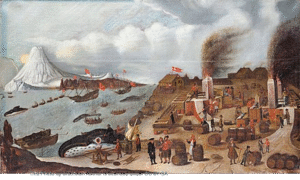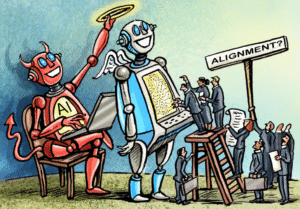Yes, I am an engineer, and we are trained to understand tradeoffs. It is called value engineering and is defined as the systematic approach to analyze the functions of a product or process and find ways to provide the same or similar functions at a lower cost without sacrificing functionality or performance. It’s a multidisciplinary process involving experts from various fields to identify cost-saving opportunities while maintaining or improving value.
One clear example is driving my Tesla. The faster I go, the lower the battery range, and for long trips, the recharge stops are more frequent and take longer. There clearly must be a time to destination objective function and a total kWh to destination perspective … aka cost for the trip. This may be extremely difficult to do in your head but is easy to do in practice … but there are so many value components that it does get tricky.
One emotional answer is to drive at your normal highway speed, say 75, and run the battery down to almost zero and then recharge it all the way up to get to your destination. That is almost never the right answer because the battery charges to about 60% very quickly and then slows down, with the last 10% taking so much time you should never consider it.
So, you run the battery down, charge back to about 60% and then run the battery down. Then, you evaluate running at 80 mph and find you need another charge stop, so you emotionally decide that is wrong, but the math proves contrary in many cases. Yes, I am talking about trips that are more than 500 miles, but I am trying to emphasize the point that life is almost always about tradeoffs. What is the value of your time and how important is it to have a reasonable battery level when you arrive at your destination.
I used to stay at places where I could charge overnight. That was a great idea then, but Tesla then starting to bark at us when we did it … they wanted us to charge and then move the car so others could use the spot. They were right of course, but the value changed in the equation above.
Enter the question of supersonic travel. Boom Supersonic has once again gained public awareness: Boom Supersonic
My previous blog on this bears reconsideration about whether the idea is consistent with a modern sustainable energy objective. But, as the blog indicated, we no longer believe that 55 mph is the right speed limit, so we are hypocrites. Captain Obvious
We engineers all know that speed comes at a terrifying increase in energy use, called the square law. Going twice as fast quadruples the energy consumption. So BOOM must contend with the obvious question about why such obscene energy use should be tolerated? Notice in the articles both years ago and recently that NO ONE ASKS THAT!
Another example of this optimization quest is the whaling industry, which has become familiar to us since we began spending summers aboard our power catamaran in Mystic Seaport Museum Marina in 2023. In the late 1800s manually thrown harpoons were replaced with exploding devices fired from cannons in the bow aboard steam powered ships that could run down the whales. This certainly increased the yield and lowered costs, but no one was asking the obvious questions: Is this the right thing to be doing and is this sustainable? Could they not see they were wiping out the entire species, or did they not want to ask that question?
So, there we have it. When I want something, I am not interested in compromises. We have become obsessed with convenience and seem unwilling to balance that with sustainability questions we all face on this blue marble planet. We don’t seem to learn anything from history, do we?




